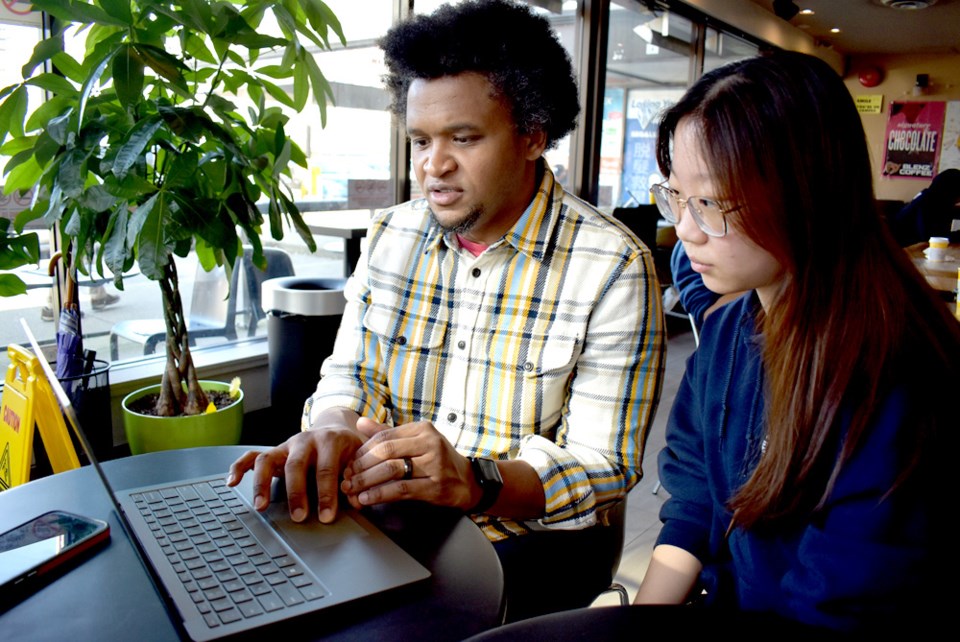Debating is a combination of data-driven arguments and artful persuasion.
In a debate, the debater isn’t trying to convince their opponent of their argument, rather they’re trying to convince the judges that their argument is better than their opponent’s.
“The students aren’t debating each other – they’re debating the predisposition of the judge,” explained Benjamin Hagwood, a debate coach and Richmond resident.
Debaters need to read the situation and the people sitting in the judge’s chair, he added.
It’s a matter of “facts over feelings,” he said.
But what happens on the debate stage isn't just a spontaneous sparring of ideas, rather, it's a culmination of weeks of deep research into both the pros and cons of a given topic, and learning how to pivot and adapt to arguments during the debate.
These are lessons Annie Zhou has been learning since she was in Grade 7.
Just after the pandemic hit, Annie started taking online debating classes and learning under Hagwood’s direction.
This has led her to debate on an international stage.
Annie, who’s now a Grade 10 student at McMath secondary, recently took part in the Harvard Debate, with participants from around the world.
Annie made it to the semifinals on the topic of the harms and benefits of unionization.
To get that far, she had nine debates over three days.
In some of those debates, she had to argue for unionization, in others, she argued against unionization.
Because the debate was based in the U.S., one argument in favour of unionization was health insurance. But other arguments for unionization include guaranteeing fair wages for minorities, job security and better working conditions.
As for the cons of unionization, this included the idea that unions encourage corruption and stifle innovation.
Debating as challenging as sports
Annie compares debating to high-level athletics.
“I think of debate as a sport… it’s a test of fitness, too,” she said.
During the Harvard Debate, which she did over Zoom, Annie had to start competing at 6 a.m. – given the time difference with the east coast where it was taking place.
Despite the early hour, like athletes at an early morning practice, it didn’t take long for her adrenalin to get pumping.
Debating develops more complex thinkers by forcing people to argue multiple sides, Hagwood explained. It also fights the spread of misinformation when your facts are challenged and you need to find evidence to back up your arguments.
During a debate, there are often curve balls thrown by opponents, and debaters need to be able to pivot and adapt their arguments on the spot.
Annie’s strategy is “how do I frame it so it’s beneficial to my argument.”
Life is a debate, Annie said, and the skills needed for debating - communication, research, adaptation, confidence - can be applied to a wide variety of situations.
“It’s a skill that’s applicable to all of life,” she added.
Hagwood, who runs the debating wing of BL Education Consultants, a private company, would like to see debating integrated into the public school system.
He noted private schools tend to focus on debating more than public schools. This could be because of parental influence and resources, he surmised.
But debating doesn’t have to be a standalone activity, rather, it can be applied to any subject.
It also can be useful in trying to convince people who have been stuck in echo chambers of information where they’re just looking for people who agree with their opinion.
“It’s easy to get lost in validation,” he said.



